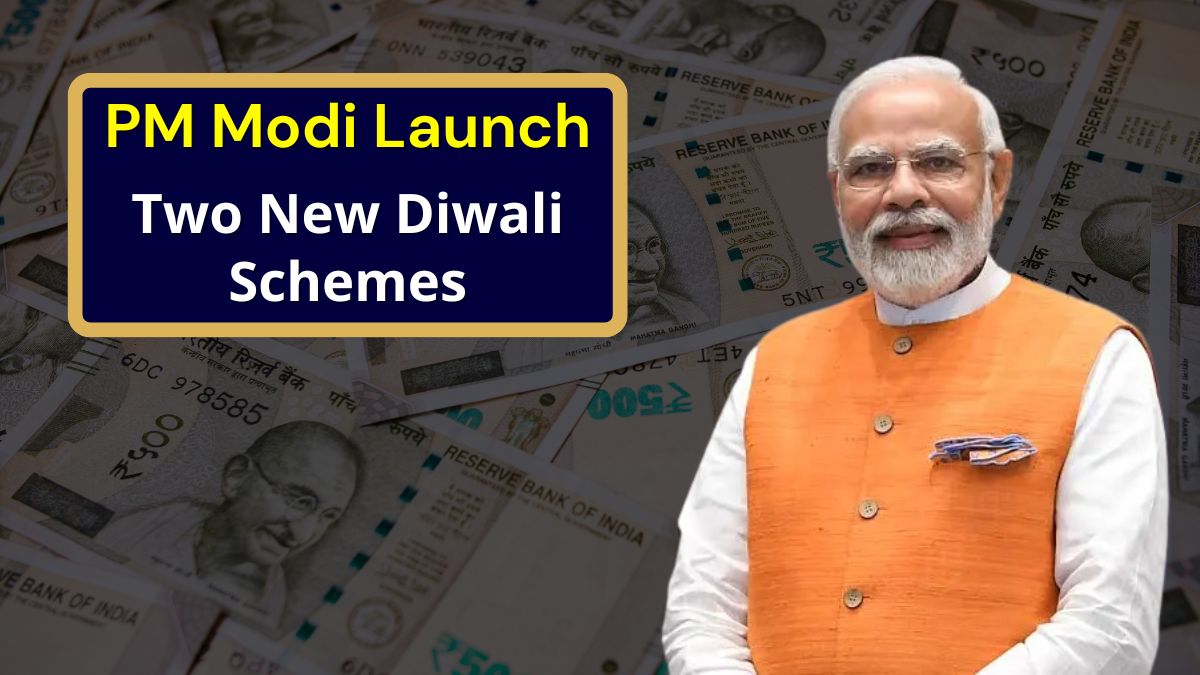This Diwali, Prime Minister Narendra Modi didn’t just light lamps — he lit up millions of farmers’ dreams. With the launch of two major agricultural schemes worth ₹35,440 crore, the government aims to make farming more profitable, self-reliant, and sustainable in the coming years.
Announced on the birth anniversary of socialist leader Jayaprakash Narayan, these schemes — the Pulses Self-Reliance Mission and the Pradhan Mantri Dhan Dhanya Krishi Yojana — mark a turning point for India’s rural economy.
If you’ve ever wondered when Indian farmers will truly see a change in their fortunes, this initiative might just be the answer.
What Are These Two New Diwali Schemes?
1. Pulses Self-Reliance Mission
India consumes more pulses than any other country, but we still import a huge share from abroad. This mission, with an investment of ₹11,440 crore, aims to end that dependency by increasing domestic production.
By 2030-31, the goal is to boost pulses output from 252.38 lakh tonnes to 350 lakh tonnes. The scheme will support farmers with better seeds, scientific farming techniques, and easier market access.
In simple terms, it’s about ensuring that India grows what it eats — reducing imports and giving pulse farmers a steady income.
2. Pradhan Mantri Dhan Dhanya Krishi Yojana
This ambitious ₹24,000 crore program will focus on 100 underperforming agricultural districts. The aim? To turn them into model farming zones.
Here’s what the scheme covers:
- Improving irrigation and water use efficiency
- Promoting crop diversification to reduce risks
- Strengthening storage and supply chains
- Making credit and insurance easily accessible
Think of it as a full-scale makeover for districts that have long been left behind. With focused funding and modern strategies, farmers in these areas will finally get the tools they need to grow more and earn more.
Both schemes have already received Cabinet approval and will be implemented starting the upcoming Rabi season, running until 2030-31.
Beyond These Schemes: A Wider Rural Push
PM Modi didn’t stop there. During the event, he inaugurated projects worth ₹5,450 crore in sectors like agriculture, animal husbandry, fisheries, and food processing. He also laid foundation stones for new initiatives worth ₹815 crore.
Some of the highlights include:
- Artificial Insemination Training Centres in Bengaluru and Jammu & Kashmir
- Centres of Excellence in Amreli and Banas
- An IVF laboratory in Assam under the Rashtriya Gokul Mission
- Milk powder plants in Mehsana, Indore, and Bhilwara
- A fish feed plant under the Pradhan Mantri Matsya Sampada Yojana in Tezpur
These projects are not just about infrastructure — they’re about improving livelihoods, empowering local communities, and giving India’s farmers the dignity and income they deserve.
Recognizing India’s Real Heroes: The Farmers
During the ceremony, PM Modi personally handed out certificates to farmers under the National Mission on Natural Farming and Primary Agricultural Cooperative Credit Societies (PACS) that were transformed into Pradhan Mantri Kisan Samriddhi Kendras (PMKSKs) and Common Service Centers (CSCs).
He also highlighted India’s growing network of 10,000 Farmer Producer Organizations (FPOs) that now represent over 5 million members. These farmer groups are playing a key role in cutting out middlemen and helping farmers sell directly, ensuring they get fair prices for their hard work.
“A New Era for Indian Agriculture”
Speaking at the event, PM Modi emphasized that the future of India’s growth lies in the strength of its villages and the prosperity of its farmers. The two new Diwali schemes are not just about money — they’re about trust, empowerment, and long-term transformation.
Agriculture Minister Shivraj Singh Chouhan, Fisheries Minister Rajiv Ranjan Singh, and Minister of State for Agriculture Bhagirath Chaudhary were also present, echoing the message that this initiative could be a game-changer for India’s farm economy.
Why This Matters
For years, Indian farmers have battled rising costs, uncertain weather, and fluctuating prices. The ₹35,440 crore investment signals a strong policy shift toward self-reliance and farmer welfare.
These schemes aim to solve problems at their roots — better irrigation, smarter crop choices, improved access to markets, and modern technology — all to ensure that farmers finally reap the rewards they deserve.
If these plans succeed, they could spark a ripple effect across India’s rural economy, creating jobs, boosting exports, and reducing our dependence on imported food.
Frequently Asked Questions
1. What is the Pulses Self-Reliance Mission?
It’s a ₹11,440 crore government program to increase India’s pulses production from 252.38 to 350 lakh tonnes by 2030-31, reducing imports and supporting farmers with better resources.
2. What is the goal of the Pradhan Mantri Dhan Dhanya Krishi Yojana?
This ₹24,000 crore scheme aims to improve productivity, irrigation, and income levels in 100 underperforming agricultural districts across India.
3. When will these schemes start?
Both schemes will begin from the upcoming Rabi season and continue till 2030-31, providing long-term benefits to millions of farmers.
